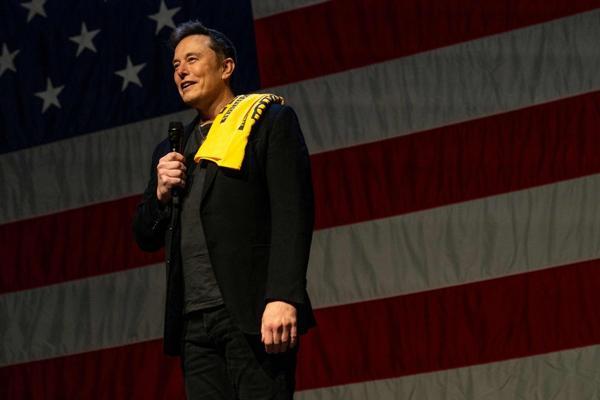Is Musk's million-dollar US voter lottery legal?
WASHINGTON


Donald Trump surrogate Elon Musk's offer of a million dollars to one registered voter in a swing state every day until U.S. Election Day on Nov. 5 has raised questions about the legality of such a move.
While Democratic candidate Kamala Harris's campaign has not commented on the contest, Josh Shapiro, the Democratic Governor of Pennsylvania, said on NBC's Meet the Press: "I think it's something that law enforcement should take a look at."
Musk, the world's richest man, announced the contest Saturday in Pennsylvania, one of the seven "swing states" that will likely determine who will become the next U.S. president—Harris or Republican Trump.
The contest requires entrants to sign a petition "to support free speech & the right to bear arms," Tesla and SpaceX CEO Musk said on X, the social media platform he owns.
The endeavor enters hot water with the requirement that people are registered to vote in swing states in order to participate.
Danielle Lang, a professor at Georgetown Law School who specializes in election law, told AFP the contest could be "subject to civil or criminal enforcement by the Department of Justice."
"It is illegal to give out money on the condition that recipients register as voters," she said.
"As the terms of this 'contest' to win $1 million require the recipient to be a registered voter in one of seven swing states (or to register if they have not already), the offer violates federal law," she continued.
Gray area
Rick Hasen, a political science professor at the University of California, Los Angeles (UCLA) School of Law, expressed a similar sentiment on his Election Law Blog.
He cited the specific law that prohibits anyone who "pays or offers to pay or accepts payment... for registration to vote," adding that the penalty involves a fine of $10,000 or up to five years imprisonment.
Not everyone is of the same mindset, however.
Brad Smith, the former chairman of the Federal Election Commission, told the New York Times what Musk is doing is "something of a gray area."
Since Musk is not paying people to register directly, but rather for signing a petition, "I think he comes out OK here," Smith said.
For his part, Musk defends his move by saying it is a simple get out and vote effort.
"We want to make sure that everyone in swing states hears about this and I suspect this will ensure they do," he wrote on X.
Tesla and SpaceX CEO Musk has pulled out all the stops in recent weeks to support former president Trump, including donating $75 million to a pro-Trump political action committee and appearing at campaign rallies.
"Just go out there and talk to your friends and family and acquaintances and people you meet in the street and... convince them to vote," he told the crowd at the rally where he announced the petition contest.
Lang said that schemes such as these occur "each election cycle."
"We tend to see some businesses that engage in some questionable activity along these lines (such as offering a free item for showing an 'I Voted' sticker) but this is notable for its far larger size," she said.
